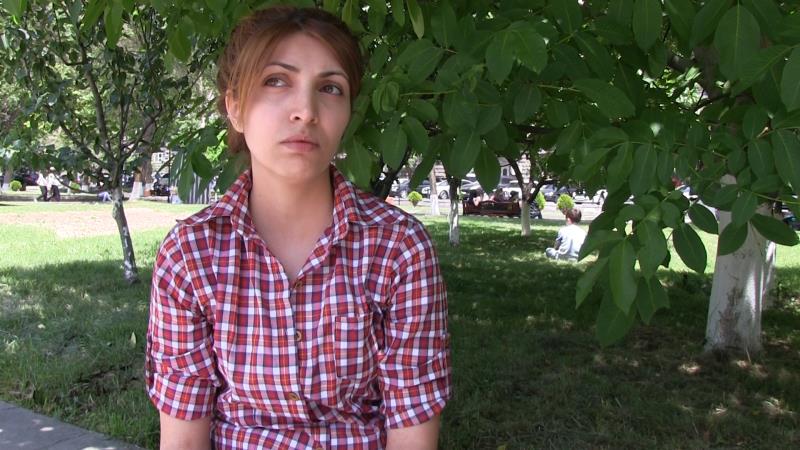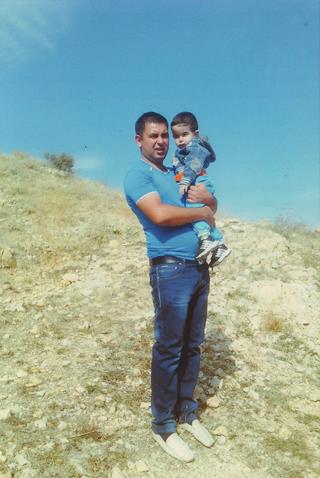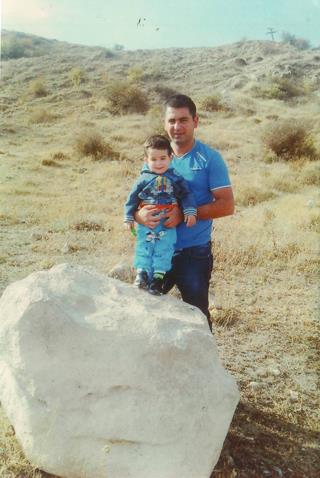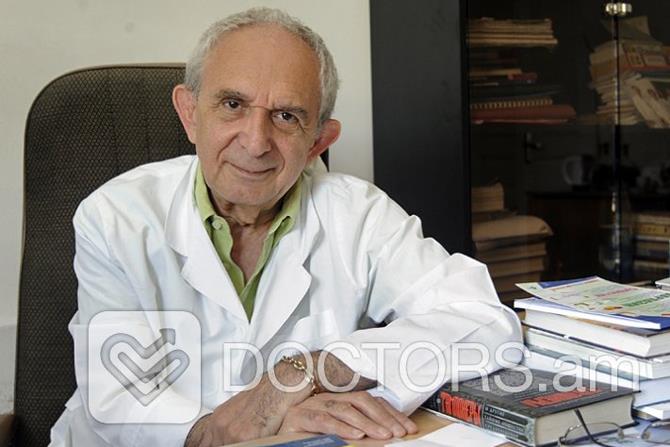They have violated the Hippocratic Oath
Arevik Zohrabyan has already stopped looking for those, guilty of her husband’s death because the three-year struggle did not yield any results. Every day she has to think of what to answer to her two minor sons’ question about their father and the reason why he was no longer with them and where he is.

It happened in spring 2013. Arevik’s husband, 27 year-old Tsolak Mkrtchyan, had a stomachache, but he could not take medicines because he had an allergy. Tsolak turned to the CJSC Masis Medical Center, where he was made Papaverine intramuscular injection. He returned home, but according to Arevik, the pain resumed at night and her husband returned to the hospital.

“I suggested accompanying him, but he refused and said he would return soon. He went to the hospital. I called him many timed, but he did not answer. I was waiting for him for the whole night. At 6.00 a.m. they came and told me that my husband had died, Arevik tells and stops as she is unable to go on.

Gevork Grigoryan, the head of Masis Medical Center’s Surgery Department, made Baralgetas intramuscular injection to Tsolak and the patient got into the anaphylactic shock. According to the forensic expertise conclusion, Tsolak Mkrtchyan died of the anaphylactic shock as a result of injection of the Baralgetas (Baralgin) medical preparation.
According to Arevik, during the first visit to the hospital her husband warned the doctor that he had the allergy for medicaments, but in the framework of the criminal case doctor Grigoryan said that Tsolak had not warmed him.
A patient can be saved from the anaphylactic shock by an immediate injection of adrenaline (epinephrine) and by following resuscitation. But the adrenaline injection was made too late to Tsolak Mkrtchyan and this fact has been recorded in the forensic expertise conclusion.
Expert commissions’ judgments contradict one another
The medical expert commission, headed by Spartak Ghambarov, Senior Allergologist of the Republic of Armenia, was formed to investigate Tsolak Mkrtchyan’s death circumstances.

The Commission concluded that development of the anaphylactic shock might have been prevented by a timely adrenaline injection. However, for some reason, the investigative body did not take that conclusion as a basis. Arevik recollects that during the first meeting the investigator said about the doctor: “This is a reputed persons and nothing can be done to him.
The second expertize, headed by anesthesiologist Irina Malkhasyan, and was set up in the framework of the preliminary investigation.

The Commission’s secondary conclusion gave grounds for termination of the case. According to it, the death was not caused by tardily injection of adrenaline; the anaphylactic shock would develop despite it.
The third commission was formed after Arevik Zohrabyan had appealed. The commission was headed again by Irina Malkhasyan and it confirmed the previous commission’s conclusion. Arevik Zohrabyan affirms that giving such conclusions the commission members try to defend the interests of their colleague, doctor Grigoryan. As a result, criminal proceedings over Tsolak Mkrtchyan’s death were ceased on the basis of the medical expert commission’s judgment.
When talking to us, Irina Malkhasyan noted that she did not remember that case, she was short of time and, in her opinion, in most cases lethal outcome was not the result of medical malpractice. In her words, the journalists raise a fuss over it in vain.
As for Doctor Gevork Grigoryan, he refused to meet with journalists, saying that lawyers and journalists were biased. “You may slime me as much as you want, he said.
Anesthesiologist David Melkonyan, members of the commission, which gave an expert judgment in favor of Gevork Grigoryan, also said he did not remember that concrete case but in his opinion, Masis hospital had a lot of problems, including absence of anesthesiologist on day-and-night duty.
Doctor Davit Melkonyan, a member of the commission, considers that doctors are always in the public focus: they can work perfectly for 30 years and suddenly turn out to be on the felon’s dock. “Everything should be probed thoroughly into, possible, he had a personal tragedy, something happened, Melkonyan noted.
The law concedes to doctors’ “solidarity
According to Inessa Petrosyan, a lawyer, defending Arevik Zohrabyan’s rights, doctor-experts’ conclusion is considered as a weighty evidence in the process of preliminary investigation. In Inessa Petrosyan’s opinion, it is inadmissible.
“Proceeding from doctors’ solidarity, doctor-experts do not make a judgment against their colleague. The lawyers consider that a body, considering a lawsuit must also carry out investigation, for example, analyze the telephone calls.
Article 130 of the Criminal Code of the Republic of Armenia specifies the doctoral malpractice as follows: failure to implement or improper implementation of professional duties by individuals providing medical aid and services, that causes a patient’s death or inflicts serious damage to his/her health.
According to the police data for 2010-2014, 121 criminal proceedings were instituted pursuant to the abovementioned article; 22 cases were submitted to court, 54 cases were ceased, 2 – suspended, 43 cases are at the preliminary investigation stage.
According to data of the RA Judicial Department, during the period under review the court considered 27 cases and decided the fate of 32 doctors pursuant the article: failure to implement or improper implementation of professional duties by individuals providing medical aid and services, that causes a patient’s death or inflicts serious damage to his/her health. 28 doctors were sentenced to imprisonment, but 19 doctors were amnestied. In 8 cases the court ruled to establish a probation period under Article 70 of the Criminal Code of RA. One doctor was exculpated; criminal proceedings against another were ceased due to absence of components of crime. Two doctors were imposed AMD100.000 (over US$200) fine.
Ara Kazaryan, a lawyer, international law expert, explains that judges are given a possibility to make a decision on suspended non-application of punishment under Article 70 of the Criminal Code of RA.
“The Appeals Court usually determines a judicial policy based on precedents. But it is not excluded that the judicial policy was decided on the phone, according to internal instructions, sent to courts. On the one hand, Article 70 is an act of humanism, on the other hand, a risk of corruption is not excluded, Ara Kazaryan noted.
Thus, doctors’ interests are defended both, in course of preliminary investigation, as well as during judicial proceedings and expertise. People, who have lost relatives because of the medical malpractice, try to be defended by lawyers and journalists. Having filed complains with different judicial instances, they become disillusioned, yield to impunity and stop struggling.
35 seconds near the Intensive Care Unit of one of Yerevan hospitals



















